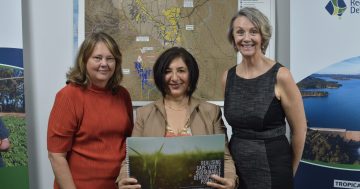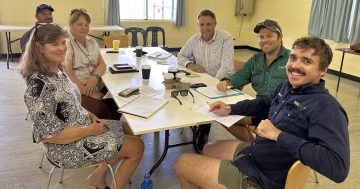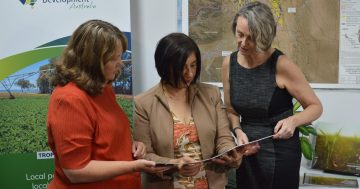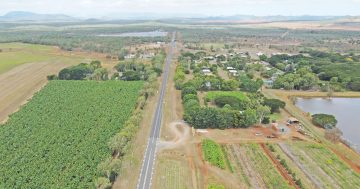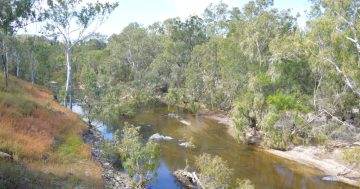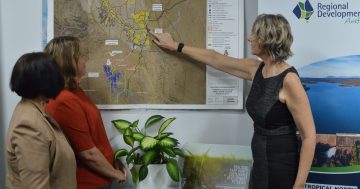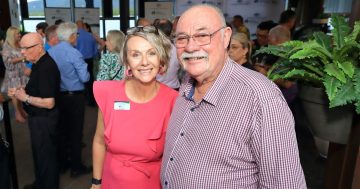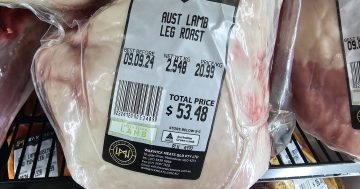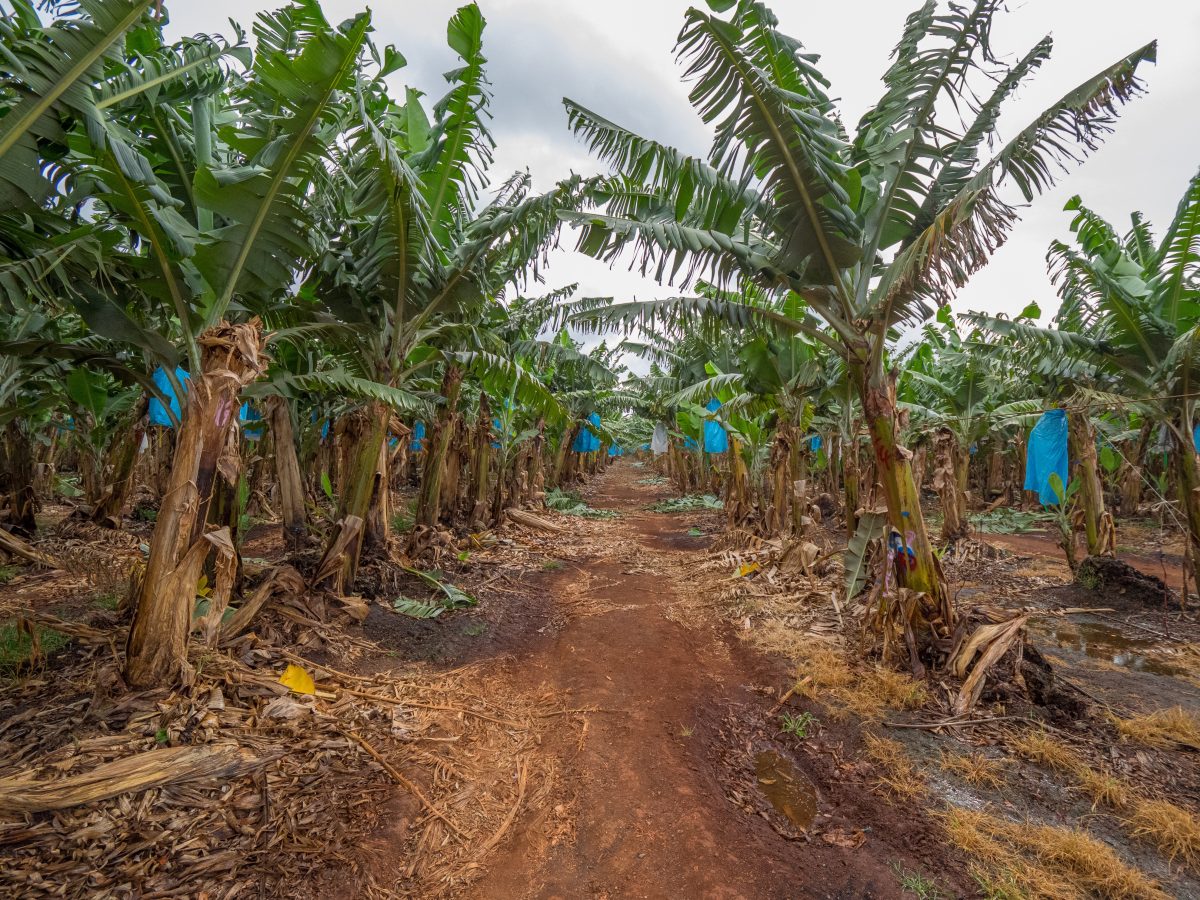
Regional Development Australia Tropical North says the Lakeland Irrigation Area Scheme project has the potential to create a $500 million annual economic boost to the region. Photo: Supplied.
The chief executive officer of Regional Development Australia (RDA) Tropical North says the ambitious Lakeland Irrigation Area Scheme (LIAS) could be operational by 2031 if stakeholders waste no time in forming a mobilisation taskforce to guide the project.
The announcement was made during unveiling of a detailed business case for the project on 22 May, with Sonja Johnson stating the proposed construction of a 296-gigalitre dam on the Palmer River had the potential to unlock the area socially and economically.
“The scheme is certainly exciting for the whole of our region,” she said.
“It is a 296-gigalitre dam on the Palmer River, with a 12-kilometre gravity fed tunnel under the Great Dividing Range to the Lakeland area, with two reticulation arms.”
“The great thing about this scheme is that over half [the proposed irrigation footprint] is cleared land; there is no other scheme in Australia which has as much cleared land as Lakeland.”
While the $1.6 billion project is currently unfunded, Ms Johnson said time was of the essence in terms of maintaining momentum following the release of the detailed business case.
“The next stage is a pretty big stage,” she explained.
“We need a mobilisation taskforce made up of State and Federal Government decision makers, Western Yalanji, the growers [and] ourselves, to basically find a proponent, because at the moment, we need Sunwater as a proponent, or potentially a public-private partnership.
“We need the detailed design stage to be done, and that money needs to come from National Water Grid Authority; we also need the Mitchell [River] catchment water plan to be reviewed sooner, rather than later.”
The project has been welcomed by Western Yalanji Aboriginal Corporation CEO Brad Grogan, who said he believed it would bring immense potential and benefit to Traditional Owners as well as the greater Cook Shire and Cape York communities.
“We firmly stand behind this transformative initiative, which will enable our people to build a strong, prosperous future that facilitates the preservation of our cultural heritage while embracing modern advancements,” he said.
“It will not only enhance our economic wellbeing, but will also improve overall living conditions, foster social cohesion and community development, with better access to essential services such as healthcare, education and transportation.”
Paul Inderbitzin’s family pioneered banana growing in Lakeland, and the primary producer said the only thing holding back the region’s expansion was water security.
“With the skills and land already available, we just need to add water to create greater opportunity to expand into a diverse range of high-value crops,” he said.
It is estimated the project will have the capacity to support up to 10,050 hectares of additional irrigated cropping with between 70-97 per cent water reliability.
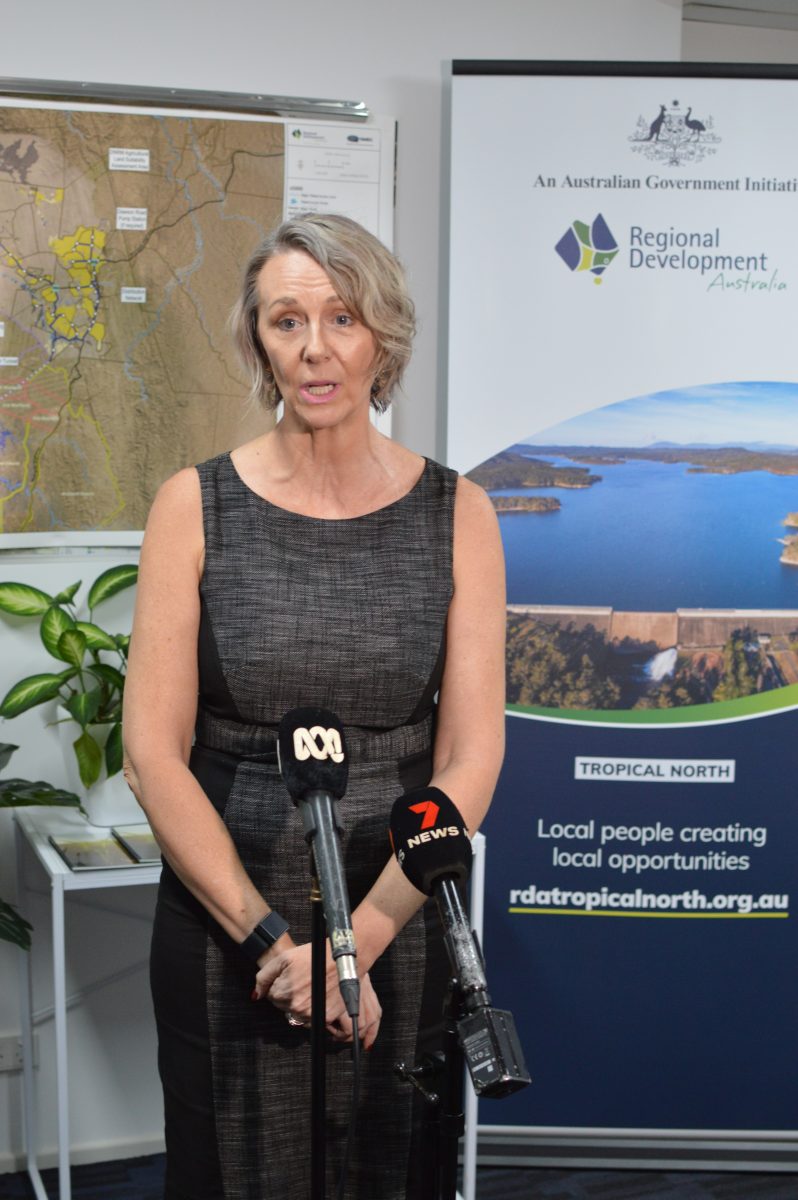
Regional Development Australia Tropical North CEO Sonja Johnson outlines the Lakeland irrigation project detailed business case for media on 22 May. Photo: Lyndon Keane.


